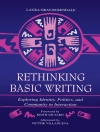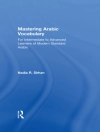Showcasing exemplary research programs, this book explores how the latest theories and findings on cognitive development can be used to improve classroom instruction. The focus is on how children acquire knowledge about the processes involved in learning—such as remembering, thinking, and problem solving—as well as strategies for mastering new information. The contributors are leading experts who illustrate ways teachers can support the development of metacognition and goal-directed strategy use throughout the school years and in different academic domains. Teacher behaviors and instructional methods that promote these abilities are identified, and innovative assessment approaches and research designs are described.
Table of Content
Foreword, John G. Borkowski
I: Skilled Memory
1. Metacognition and Strategy Discovery in Early Childhood, Harriet Salatas Waters and Thomas W. Kunnmann
2. Teachers’ “Mnemonic Style” and the Development of Skilled Memory, Peter A. Ornstein, Jennie K. Grammer, and Jennifer L. Coffman
3. Metacognition and Memory Development in Childhood and Adolescence, Wolfgang Schneider
II: Math And Science
4. Self-Explanations Promote Children’s Learning, Robert S. Siegler and Xiaodong Lin
5. Bird Experts: A Study of Child and Adult Knowledge Utilization, Harriet Salatas Waters and Theodore E. A. Waters
6. The Dual Components of Developing Strategy Use: Production and Inhibition, Deanna Kuhn and Maria Pease
7. Fostering Scientific Reasoning with Multimedia Instruction, Richard E. Mayer
8 The Importance of Metacognition for Conceptual Change and Strategy Use in Mathematics, Martha Carr
III: Reading, Writing, and Academic Performance
9. Determining and Describing Reading Strategies: Internet and Traditional Forms of Reading, Peter Afflerbach and Byeong-Young Cho
10. Metacognition and Strategies Instruction in Writing, Karen R. Harris, Tanya Santangelo, and Steve Graham
11. Metacognition, Intelligence, and Academic Performance, Cesare Cornoldi
IV: Conclusion
12. Common Themes and Future Challenges, Harriet Salatas Waters and Wolfgang Schneider
About the author
Harriet Salatas Waters, Ph D, is Emerita Professor of Psychology at Stony Brook University, State University of New York. A graduate of the University of Minnesota’s Institute of Child Development, she has made significant contributions to research on attachment narratives in middle childhood, adolescence, and adulthood. She is a recipient of the 2021 Bowlby–Ainsworth Award for contributions to the theory and measurement of attachment representations
Wolfgang Schneider, Ph D, is University Vice-President and Professor of Psychology at the University of Würzburg, Germany. He earned his Ph D in psychology from the University of Heidelberg in 1979. He is Past President of the German Psychological Society and President-Elect of the International Society for the Study of Behavioral Development. His research interests include the development of memory and metacognition, giftedness and expertise, and reading and spelling, as well as the prevention of reading and math difficulties.












